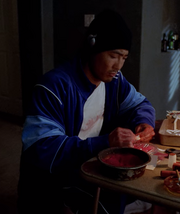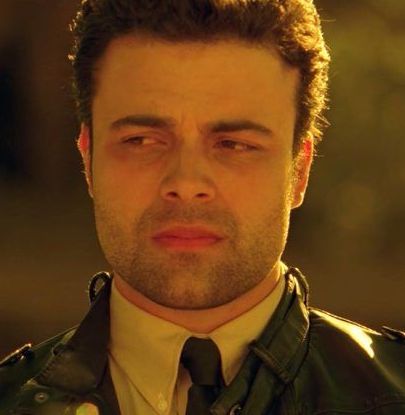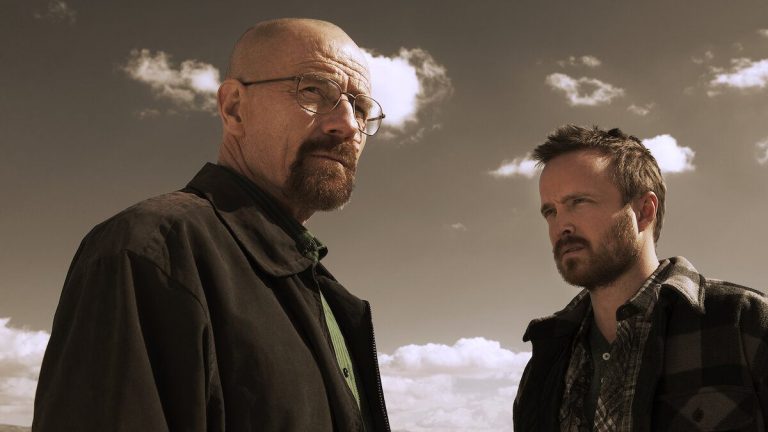Unveiling The Chilean Connection: How Breaking Bad's Gus Fring Redefined TV Villains
Few television series have captivated audiences worldwide quite like AMC's Breaking Bad. From its gripping narrative of a high school chemistry teacher's descent into the criminal underworld to its unforgettable characters, the show achieved such popularity and critical acclaim that it became one of the most successful series in history. Its intricate plotting and deep character development often left viewers speculating, discussing, and dissecting every detail – a testament to its enduring legacy, frequently seen on fan forums like the dedicated Breaking Bad subreddit.
While the series is primarily set in the American Southwest, particularly Albuquerque, New Mexico, its global reach extends far beyond its immediate setting. Surprisingly, a country thousands of miles away in South America, Chile, had a prominent and intriguing presence within the show's narrative, both through its characters and, to a lesser extent, its music. The most significant link, without a doubt, comes in the form of one of television's most iconic and terrifying antagonists: Gustavo "Gus" Fring.
Gustavo Fring: The Enigmatic Chilean Kingpin
Portrayed with chilling precision by the brilliant Giancarlo Esposito, Gustavo Fring is a character of immense relevance in both Breaking Bad and its prequel, Better Call Saul. He quickly established himself as one of the best antagonists in television history. On the surface, Gus is a respectable business magnate and philanthropist, the owner of the popular fast-food chain Los Pollos Hermanos. Beneath this veneer, however, lies the cold, calculated leader of a vast drug empire, initially affiliated with the Juárez Cartel, secretly using his restaurants as a legitimate cover for methamphetamine distribution across the southwestern United States.
From Tuco's Exit to Gus's Grand Entrance
The creation of Gus Fring is a fascinating example of how creative challenges can lead to narrative brilliance. When Raymond Cruz, who played the volatile Tuco Salamanca, was unable to continue his role in Breaking Bad season 2 due to his commitment to appear in another series, The Closer, the writers faced a dilemma. Instead of recasting or forcing Tuco's narrative, they wrote him out of the series and, in a stroke of genius, created the character of Gus to be his complete opposite. While Tuco was a screaming, unpredictable meth user, Gus was meticulous, calm, and terrifyingly composed – a stark contrast that immediately elevated the show's tension and introduced a new layer of sophisticated villainy.
The Enigmatic Past: Gus Fring and Pinochet's Chile
One of the most compelling aspects of Gus Fring's character is the tantalizingly sparse information about his past. Not a whole lot is known about Gus Fring's backstory in Breaking Bad and Better Call Saul, which only adds to his mystique. What we do know, however, is crucial: he hails from Chile. As we learned on Breaking Bad, Gustavo Fring is from Chile, right? This seemingly simple fact opens up a world of dark possibilities and speculation among fans and critics alike.
The show subtly, yet powerfully, hints at Gus's origins being deeply intertwined with the turbulent political landscape of his home country. Specifically, in Gus's case, that "world of order" he often references would have been the Chile of the dictator Augusto Pinochet. Pinochet's military government was notorious for its brutal suppression of dissent, jailing, torturing, or executing countless individuals. The implication is that Gus was not merely a civilian living through this period. As the writers Sam Catlin and George Mastras explained in discussions that went into the "Hermanos" episode, "Eladio spares Gus out of consideration for his reputation as a powerfully connected secret policeman in Pinochet’s Chile." This suggests Gus held a position of significant power and perhaps even brutality within that regime, allowing him to forge connections and develop the ruthless pragmatism that defines him in the drug trade.
- Peeling Pieds Lovaskin
- Azurescens Mushrooms
- Sara Harlow
- Blue Box Dubbed
- Taj Mediterranean Mezze And Grill
Assuming Gus was born around 1958 (making him roughly 50 at Breaking Bad's start date in 2008), he would have been around 15 when Pinochet became Chile's dictator. If we believe Gus's story of having grown up in extreme poverty (a detail he shared with Hector Salamanca, with no one else around), then joining the military or police under such a regime could have been a path to power and survival, shaping him into the formidable figure he became.
The decision by the writers to keep Gus's past largely shrouded in mystery was a deliberate one. There's a strong argument that additional backstory isn't always a positive thing, and sometimes, a character's mythic status can be degraded by the addition of too much detail. By leaving much of Gus's Chilean past to the imagination, the show enhances his enigmatic aura, making him even more terrifying and compelling. His quiet intensity, his unwavering resolve, and his capacity for extreme violence are all understood to stem from a profound, yet largely unseen, history.
Santiago Incidents and Unanswered Questions
While Breaking Bad offered glimpses, Better Call Saul continued to tease Gus's Chilean connections. In the recent season (5) of Better Call Saul, a certain "incident" that took place in Santiago, Chile, and involved Gustavo, was mentioned on two different occasions. These references further solidify his deep roots in the country and suggest unresolved threads from his past that continue to influence his present. Fans have extensively theorized about these "Santiago incidents," trying to piece together the puzzle of who exactly Gustavo Fring was in Chile before he became the drug lord of the American Southwest.
Chile Beyond Gus: A Subtle Presence
Beyond the central figure of Gustavo Fring, Chile's presence in Breaking Bad is more subtle but still noteworthy. As one of the data points suggests, "Chile had a prominent presence, both in its characters and in the music." While specific musical references might be harder to pinpoint without a deep dive into every soundtrack choice, the very existence of a character as central and iconic as Gus Fring, with his deep Chilean roots, ensures the country's indelible mark on the series. Chile itself, officially known as the Republic of Chile, is a country in America, located in the extreme southwest of South America, bordering Peru, Bolivia, and Argentina, and extending down to the Drake Passage. This geographical context, while not explicitly explored in the show, adds to the vastness of Gus's journey and the global reach of the criminal enterprise he built.
In conclusion, Breaking Bad's genius lies not just in its compelling plot and character arcs, but also in its ability to weave in subtle yet impactful details that enrich its universe. The Chilean connection, primarily through the enigmatic and terrifying Gustavo Fring, serves as a cornerstone of his character's depth and mystique. It adds a layer of geopolitical intrigue to his backstory, hinting at a past shaped by authoritarian rule and personal struggle, which ultimately forged him into the ruthless, calculating magnate we see. The show's decision to leave much of his Chilean history to the imagination only amplifies his mythic status, making him one of television's most unforgettable villains. It's a testament to how a seemingly minor detail, a character's nationality, can open up a world of narrative possibilities and contribute significantly to a show's enduring legacy.
- Shelly S Bakery
- Houston Gold Grillz
- Café Jphillipeepicerie
- Two Face Tattoo
- Trace Of Lace In Gulfport Mississippi

Chili powder | Breaking Bad Wiki | Fandom

Max Arciniega | Breaking Bad Wiki | Fandom

"Breaking Bad" regresa a la TV: ¿Dónde y cuándo podrá verse? — Radio